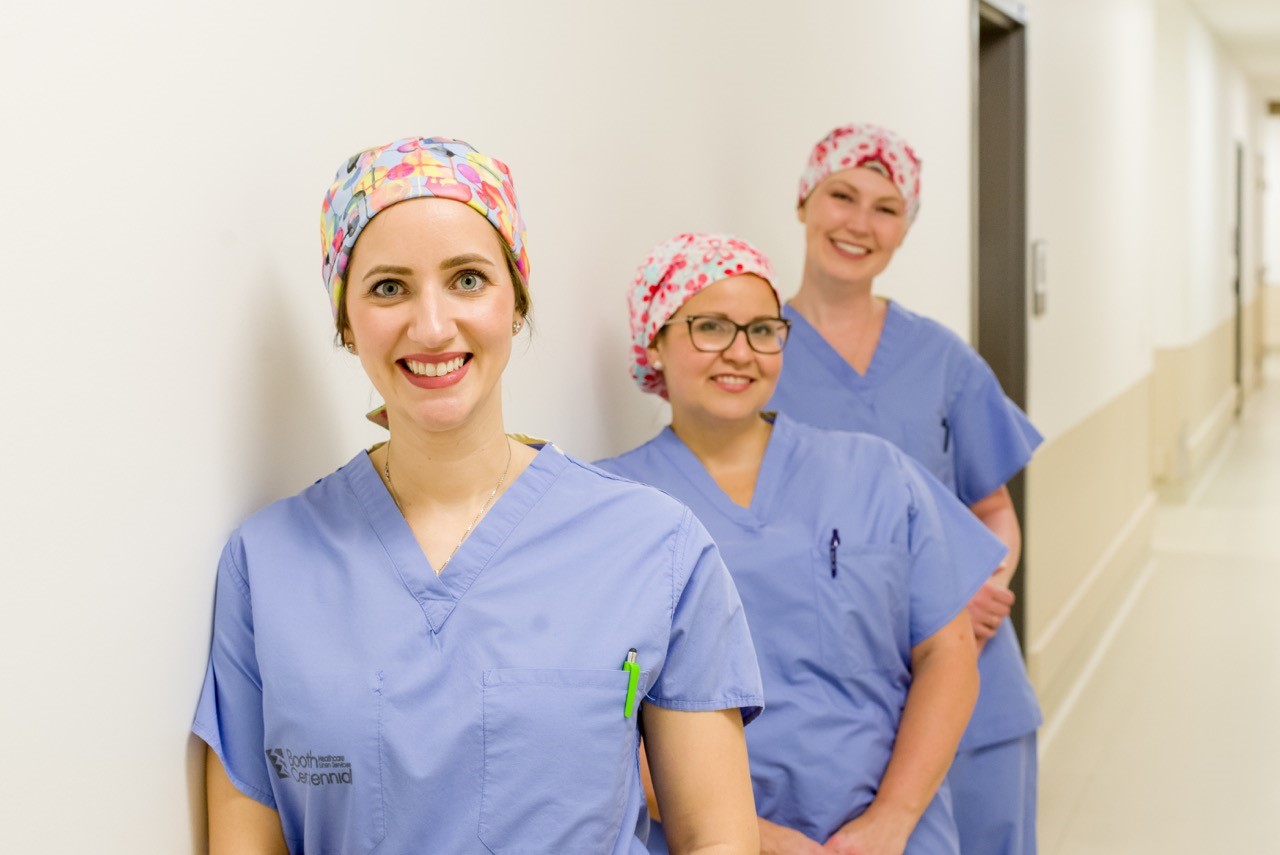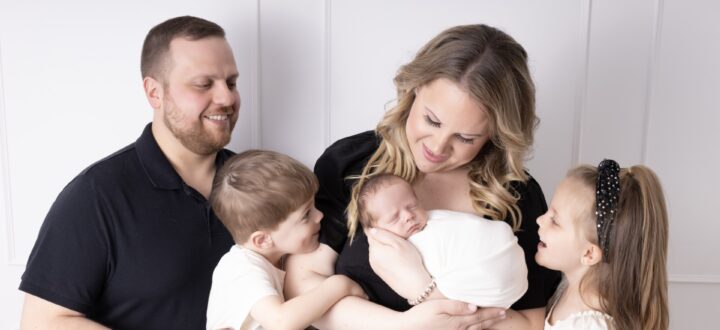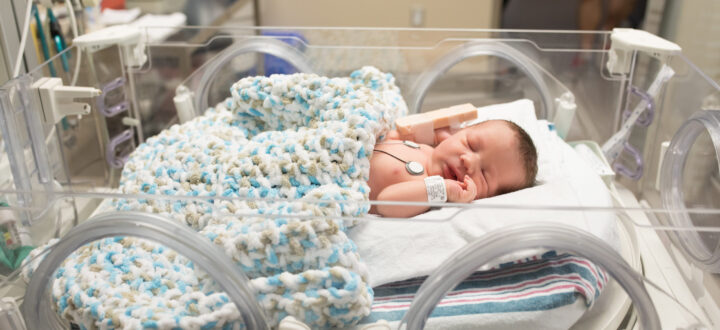Interview: Dr. Lesley Hawkins, Obstetrician and Gynaecologist (OBGYN)
Tell us a little about yourself!
My name is Dr. Lesley Hawkins and I have worked at Humber as an OBGYN since April 2019.
In one sentence, how would you explain your job to a friend?
I’m a doctor who looks after women throughout their reproductive life, which includes everything from treating issues with their periods, to looking after them during pregnancy and childbirth, to menopausal care.

“We have amazing people here who are passionate about caring for patients at this stage of their lives,” says Dr. Lesley Hawkins, pictured with Dr. Karli Mayo and Dr. Lynn Sterling.
What makes you proud of our Obstetrics & Gynaecology Program at Humber?
We have amazing people here who are passionate about caring for patients at this stage of their lives. We are constantly responding to feedback to improve our quality of care.
I’m proud of how prepared we are to offer round-the-clock care. For example, we have an anaesthesiologist available 24/7 for emergencies that would require anaesthesia, and I can get an ultrasound for my patients at any time – even at 3:00am – which I wouldn’t be able to do at most hospitals.
Finally, our new Women’s Health Clinic is providing quick access to long-acting birth control such as intrauterine devices (IUDs). Generally, an IUD is not accessible through family physicians, and insertion requires multiple visits. We are providing access to IUDs during one comprehensive visit, and our patients are waiting weeks, as opposed to months to get an appointment.
How is technology being used in our Obstetrics Program?
On a systems level, as a Hospital we are monitoring patient flow through the new Perinatal Tile in our Command Centre. So basically, in our Command Centre we have a screen that monitors expectant mothers and babies who are in the hospital and it flags when there is an elevated risk. Alerts display on a patient if there is a delay in assessment, monitoring, consultations, or treatment.
We also use Lucina, a robot that simulates childbirth and many possible medical complications that can happen during birth. We are using Lucina in one of our upcoming MoreOB workshops to help educate everyone in the department – midwives, nurses, physicians – we all participate. Research shows that simulation training is much more beneficial than discussing a case, and so we run simulations to learn as a team together.
That is so cool. Can you tell us what simulation you will be running?
It’s a secret! As a team, we respond to whatever happens during the simulation, without knowing what will happen beforehand.
What is one awesome thing you’ve done in the last year?
I took my husband to see Hamilton on Broadway. We are both musical theatre fans and it was amazing!
What inspires you?
The thing that really drives me is my patients’ stories.
WATCH: Lucina







